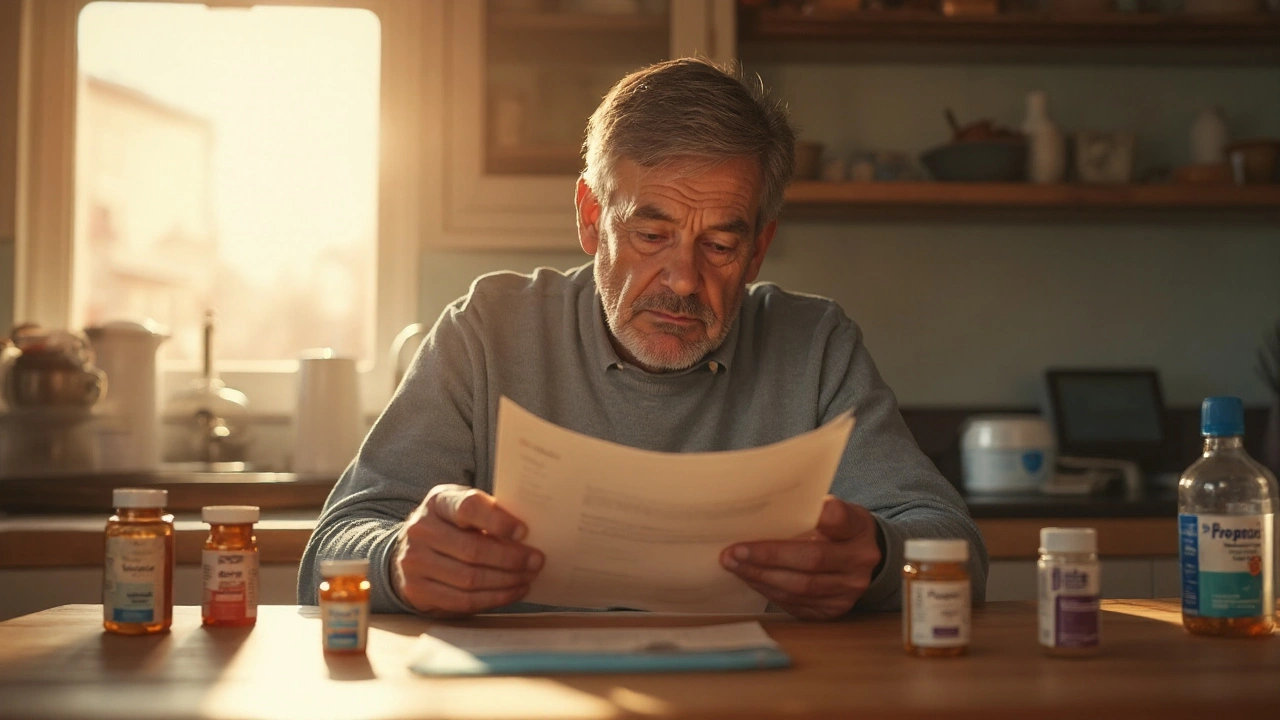Procardia Side Effects – What You Need to Know
Procardia (nifedipine) is a popular prescription drug for high blood pressure and chest pain. It works by relaxing blood vessels so blood can flow more easily. Like any medication, it can cause side effects. Knowing what to expect helps you stay safe and act quickly if something feels off.
Typical side effects you might notice
Most people on Procardia notice mild reactions that go away after a few days. Common complaints include:
- Headache – a dull throb or pressure that appears soon after taking the pill.
- Flushing – a sudden warm feeling, especially on the face and neck.
- Dizziness or light‑headedness – often when you stand up quickly.
- Swelling in the ankles or feet – the fluid buildup is usually mild.
- Rapid heartbeat (palpitations) – you may feel your heart flutter.
These symptoms are usually short‑lived, but if they linger longer than a week, talk to your doctor. Adjusting the dose or switching to a different formulation can often fix the problem.
When a side effect becomes serious
Although rare, Procardia can trigger more serious issues. Keep an eye out for:
- Severe chest pain or pressure that doesn’t go away.
- Sudden, unexplained shortness of breath.
- Fast or irregular heart rhythm that feels like fluttering or skipping beats.
- Extreme swelling in the legs, hands, or face.
- Yellowing of the skin or eyes, which may signal liver trouble.
If any of these appear, call your healthcare provider right away or head to the emergency room. Prompt medical attention can prevent complications.
Other factors can influence how you react to Procardia. Drinking alcohol, using certain over‑the‑counter medicines (like ibuprofen or antihistamines), or having kidney or liver disease can heighten side effects. Always share your full medical history with your doctor before starting the drug.
What can you do to reduce the chance of side effects?
- Take Procardia exactly as prescribed – don’t skip doses or double up.
- Stay hydrated, but avoid excessive caffeine or salty foods that can raise blood pressure.
- Get up slowly from sitting or lying down to limit dizziness.
- Monitor your blood pressure at home and keep a log for your doctor.
- Report any new symptoms right away, even if they seem minor.
If you’re looking for more medication guides, our site also covers topics like buying generic drugs online, safety tips for supplements, and side effect checklists for other prescriptions. Each guide aims to give you clear, practical info without the jargon.
Remember, Procardia can be a safe and effective way to control blood pressure when used correctly. Being aware of possible side effects, tracking how you feel, and staying in touch with your healthcare team are the best steps toward feeling better and staying healthy.

- 13 Comments
Unpack what Procardia (nifedipine) actually does for blood pressure and angina, learn about its side effects, real-world tips for users, and what research says about its safety.